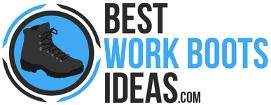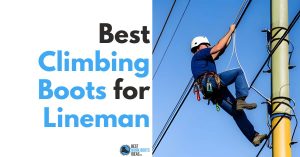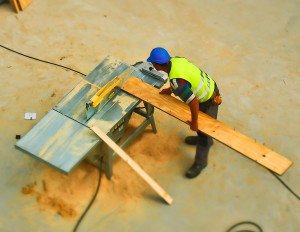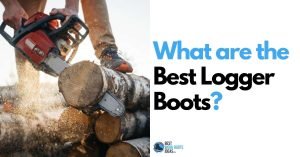Best Warehouse Work Shoes: A Comprehensive Guide for Warehouse Pickers and Workers
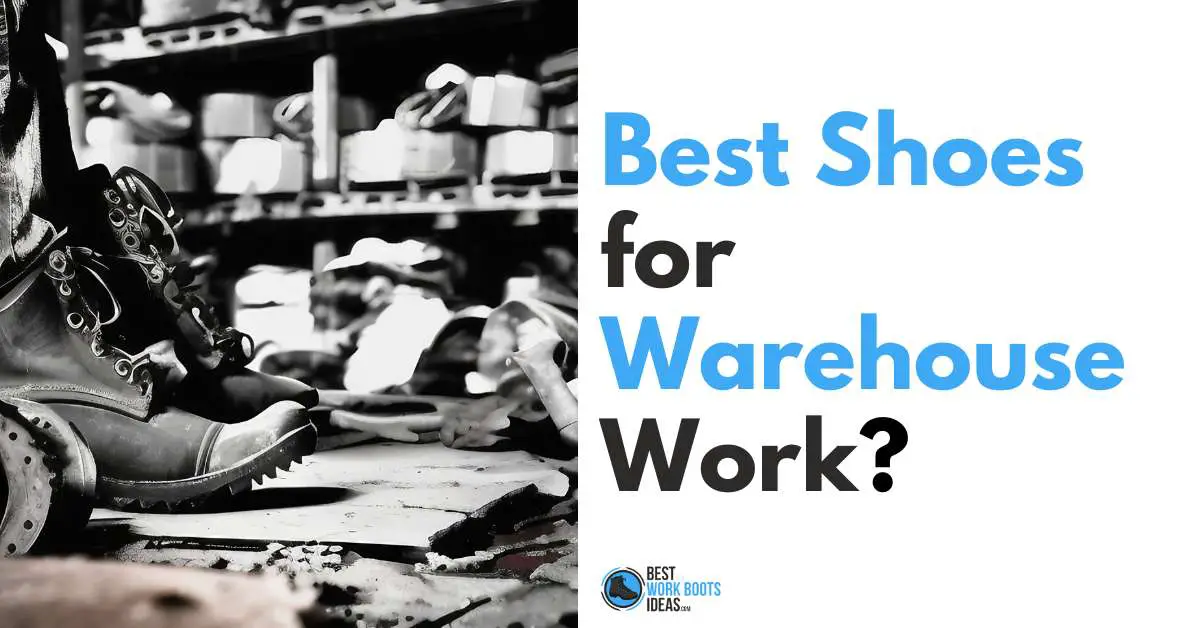
Have you ever worked in a warehouse? It’s a really physically demanding job.
As a warehouse picker or worker, you spend long hours on your feet, often navigating concrete floors and lifting heavy objects.
I’m sure you don’t need any reminding that it’s essential to choose the right shoe to keep you safe, comfortable and productive throughout your shift.
This comprehensive guide will cover the key features to consider when selecting warehouse work shoes, popular brands, and frequently asked questions.
Contents
Key Features for Warehouse Work Shoes
When looking for the right shoe for your warehouse job, consider the following essential features:
1. Safety Toe Cap
Protecting your feet from heavy objects is crucial in a warehouse environment.
Shoes with reinforced toe caps – either steel, composite, or alloy – provide essential protection against impacts and compression.
Steel toe caps are the most common and offer the highest level of protection.
However, they are heavier and can conduct temperature, making them less suitable for extreme hot or cold environments.
Composite and alloy toe caps are lighter but still provide a good level of protection.
2. Electrical Hazard Protection
Warehouse workers may encounter electrical hazards, making it important to choose footwear with electrical hazard protection.
Shoes that come with this feature are designed to reduce the risk of electrocution by providing insulation between your feet and the ground.
Look for shoes that meet or exceed the ASTM F2413-18 standard for electrical hazard protection.
3. Slip-Resistant Soles
Warehouses often have slippery surfaces due to spills, wet floors, or the presence of oil and grease.
Opt for shoes with slip-resistant soles to prevent accidents.
Shoes with slip-resistant soles are typically made from materials like rubber or thermoplastic polyurethane (TPU) that offer increased traction on slippery surfaces.
4. Comfort and Support
Long hours on your feet, especially on concrete floors, can lead to fatigue and discomfort.
Look for shoes with cushioned insoles, proper arch support, and shock-absorbing midsoles.
Memory foam, gel, or polyurethane insoles can provide additional comfort and help reduce foot fatigue.
Additionally, shoes with padded collars and tongue can prevent chafing and improve overall comfort.
5. Breathability
Opt for shoes with mesh lining or other breathable materials to keep your feet dry and comfortable throughout the day.
Proper ventilation is essential to prevent excessive sweating and the development of odors or fungal infections.
Shoes with moisture-wicking linings can also help keep your feet dry and comfortable.
6. Durability
Warehouse work shoes should be made from high-quality materials and constructed to withstand the rigors of daily use.
Look for shoes with reinforced stitching, durable leather or synthetic uppers, and abrasion-resistant soles.
Investing in a well-made pair of work shoes can save you money in the long run by reducing the need for frequent replacements so definitely consider that as part of your buying decision.
7. Ankle Support and Stability
Warehouse workers often move quickly, change directions, and navigate uneven surfaces.
Shoes with proper ankle support and stability features can help prevent injuries like sprains and strains.
High-top shoes or work boots provide additional support for the ankle, while features like heel counters and midfoot shanks can improve overall stability.
8. Water Resistance
Warehouses can be exposed to wet conditions, making it essential to choose shoes with water-resistant or waterproof materials to keep your feet dry.
Shoes with waterproof membranes, like GORE-TEX, provide the best protection against water ingress while maintaining breathability.
9. Ease of Maintenance
Since warehouse work shoes are subject to dirt, grease, and grime, it’s important to choose footwear that is easy to clean and maintain.
Shoes with removable insoles, for instance, can be easily cleaned or replaced,while shoes made from synthetic materials or treated leather can be wiped clean with a damp cloth.
Opt for shoes that are low-maintenance to ensure they remain in good condition and provide long-lasting comfort and protection.
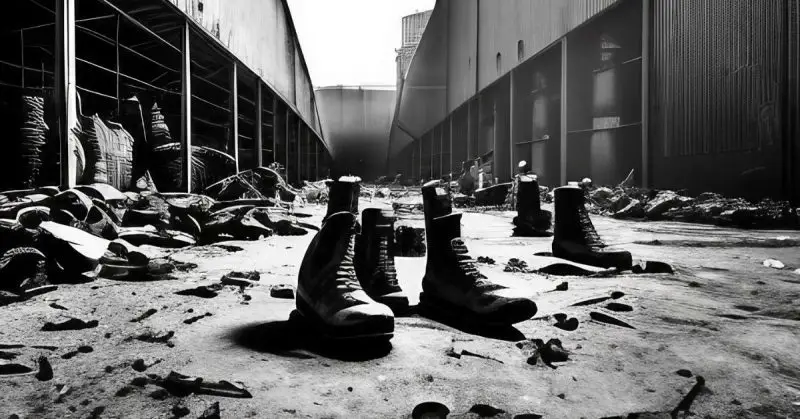
Top Brands for Warehouse Work Shoes
Here are some popular brands that offer warehouse work shoes with the essential features:
1. Timberland
Known for their rugged and durable shoes, Timberland offers several options for warehouse pickers and workers.
The Timberland PRO Men’s Powertrain Sport Alloy Toe work sneaker is an excellent option.
It features an alloy safety toe, slip-resistant soles, breathable mesh linings, and anti-fatigue technology for all-day comfort and support.
2. KEEN
KEEN Utility shoes offer a combination of comfort, durability, and protection. The KEEN Utility Men’s Pittsburgh Steel Toe Work Boot is a popular choice for warehouse work.
It features a steel toe, waterproof leather upper, slip-resistant outsole, and a dual-density EVA footbed for superior comfort and support.
3. Skechers
Focusing on comfort, Skechers offers work shoes with memory foam insoles and slip-resistant soles. The Skechers Men’s Flex Advantage SR is a great choice for warehouse workers.
It features a slip-resistant outsole, memory foam cushioned insole, and a relaxed fit design for a roomy and comfortable fit.
4. New Balance
New Balance is known for producing comfortable and supportive athletic shoes, and their work shoe line is no exception. The New Balance Men’s 626v2 Industrial Shoe is an excellent option for warehouse workers.
It offers a slip-resistant outsole, an ABZORB crash pad in the heel for impact reduction, and a compression-molded midsole for added support and comfort.
5. Red Wing
Red Wing has a long history of producing high-quality work boots. The Red Wing Men’s Iron Ranger 6″ Boot is a popular choice for warehouse workers. It features a steel toe cap, full-grain leather upper, and a durable Vibram outsole for excellent traction and support.
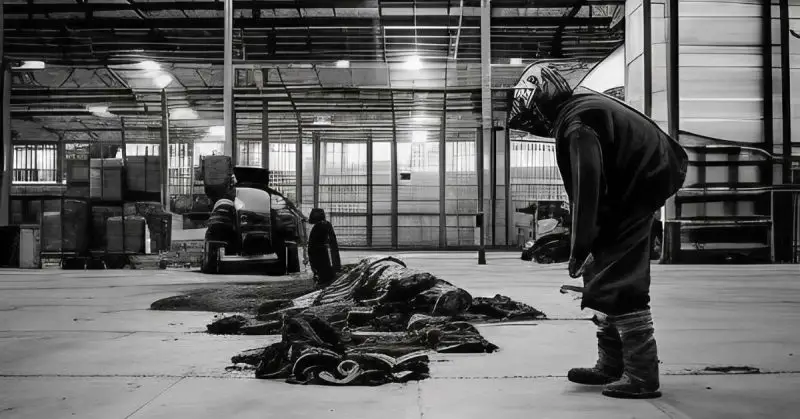
Tips for Choosing the Right Shoe for Your Warehouse Job
To find the perfect pair of work shoes for your warehouse job, consider the following tips:
Know your workplace requirements: Before purchasing work shoes, make sure to check your employer’s specific safety requirements. Some warehouses may have strict guidelines regarding the type of footwear that must be worn.
Get properly fitted: It’s essential to get your feet measured and try on different shoe sizes and styles to find the perfect fit. A properly fitted shoe will provide the best support and comfort for long hours on your feet.
Consider additional features: Depending on your specific warehouse job, you may want to look for shoes with additional features, such as puncture-resistant soles, metatarsal guards, or static dissipative properties.
Invest in quality: While it may be tempting to opt for a less expensive pair of work shoes, investing in a high-quality pair can save you money in the long run so you don’t need to buy so many pairs..
Quality work shoes also provide better support and protection, which can improve your overall comfort and reduce the risk of workplace injuries.
Break in your shoes: Before starting a full work shift in your new shoes, give them some time to break in. Wear them around the house or for short periods at work to help the shoes conform to your feet and prevent discomfort.
Replace worn-out shoes: Even the best work shoes will wear out over time. Be sure to replace your shoes when you notice signs of wear, such as worn-out soles, cracked leather, or decreased support. Worn-out shoes can lead to discomfort and an increased risk of injury.
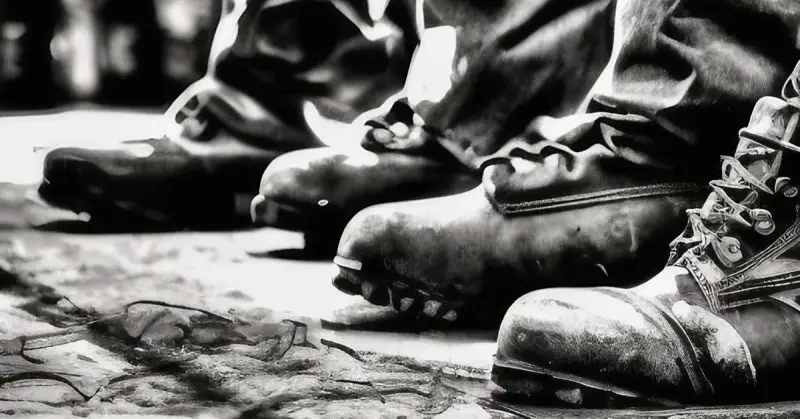
Frequently Asked Questions
To help you make the best decision when purchasing warehouse work shoes, we’ve answered some common questions below:
Q: How often should I replace my warehouse work shoes?
A: On average, you should replace your work shoes every 6 to 12 months or when you notice signs of wear, such as worn-out soles, cracked leather, or decreased support.
However, the lifespan of your work shoes may depend on their quality and their use.
Q: Can I wear sneakers instead of work boots in a warehouse?
A: While sneakers may offer more comfort, they typically lack the necessary safety features for warehouse work, such as slip-resistant soles, safety toe caps, and sufficient support.
It’s best to choose shoes specifically designed for warehouse environments.
Q: Are steel toe caps better than composite toe caps?
A: Both steel and composite toe caps offer protection against impacts and compression.
Steel toe caps are heavier but provide more protection, while composite toe caps are lighter and don’t conduct heat or cold.
The choice depends on your personal preference and specific job requirements.
Q: How do I maintain my warehouse work shoes?
A: Regular cleaning and maintenance can help extend the life of your work shoes.
Wipe off dirt and debris with a damp cloth, and use a soft brush to clean any stubborn stains.
If your shoes have removable insoles, take them out and clean them separately.
Allow your shoes to air-dry away from direct heat sources, as excessive heat can damage the materials.
Additionally, using a waterproof spray or conditioner on leather shoes can help protect them from water damage and keep them looking new.
Q: Can I use orthotic inserts in my warehouse work shoes?
A: Yes, many work shoes are designed with removable insoles, allowing you to replace them with custom orthotic inserts if needed.
If you require additional arch support or have specific foot conditions, using orthotic inserts can help improve comfort and reduce foot pain during your work shift.
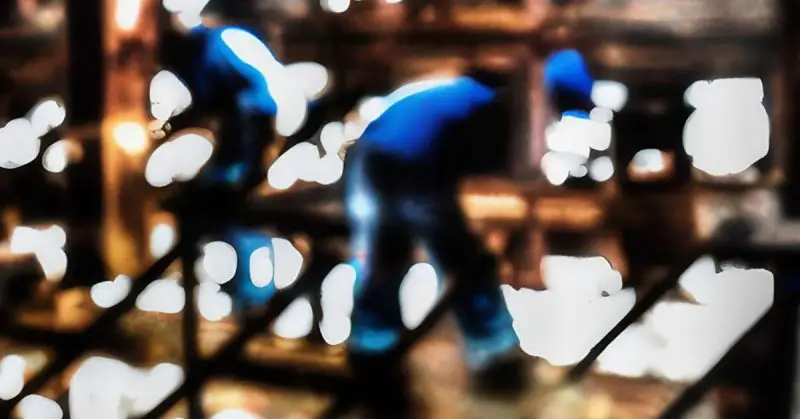
Conclusion
Choosing the right shoes for warehouse work is essential for ensuring your safety and comfort on the job.
By considering the key features, such as safety toe protection, slip-resistant soles, electrical hazard protection, and proper support, you can find the perfect pair of work shoes to keep you comfortable and protected throughout your shift.
Additionally, investing in high-quality shoes from reputable brands like Timberland, KEEN, Skechers, New Balance, and Red Wing can help ensure that your footwear is durable and up to the challenges of warehouse work.
